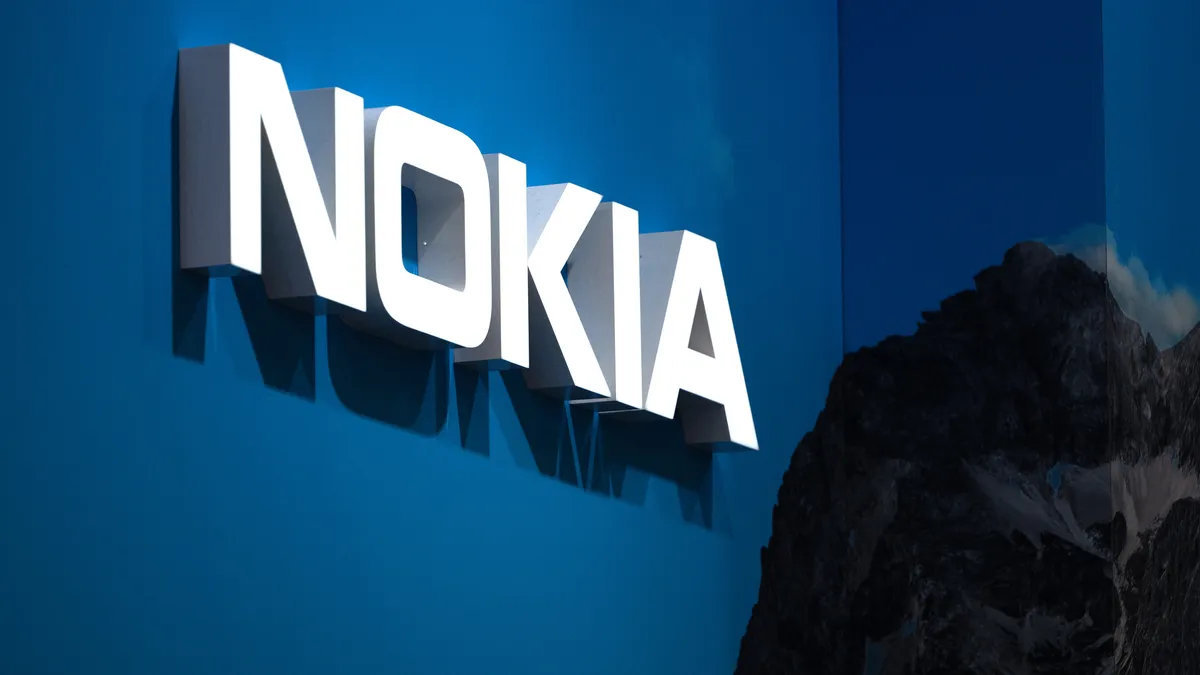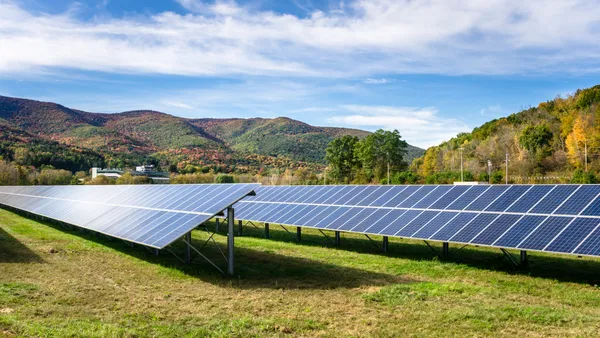Dive Brief:
- Nokia has accelerated the timeline for its decarbonization goals and is now aiming to hit net-zero greenhouse gas emissions by 2040, the company announced Monday. The updated goal is a decade ahead of both its prior target and the Paris Agreement’s 2050 net-zero target.
- The telecommunications and consumer electronics company also said it will fast-track decarbonization efforts across its operations to double down on its existing near-term target of slashing scope 1, 2 and 3 emissions by half by 2030, compared to a 2019 baseline.
- The Finland-based company has committed to using 100% renewable electricity in its own facilities by 2025, already hitting 63% of its target in 2022. Nokia said it is working with its supply chain as well to aid the transition to renewables.
Dive Insight:
Nokia’s updated goal aligns with that of its main competitor, Ericsson. The Swedish multinational telecom company is also aiming for net-zero status by 2040 and halving its supply chain emissions by 2030.
“Our new emission reduction targets show that net zero is a business priority for Nokia,” Nokia President and CEO Pekka Lundmark said in a release. “We already help our telecom customers to decarbonize … That journey will only accelerate, as Nokia launches more energy efficient solutions.”
Building on its sustainability strategy, Nokia said it plans to completely decarbonize its car fleet and facilities and will turn to low-carbon electricity alternatives to power its operations. Currently, the network equipment manufacturer uses a mix of on-site solar energy, power purchase agreements and renewable electricity products — obtained directly from energy suppliers — and renewable electricity certificates to acquire renewable electricity.
However, the company said the decarbonization of its marine fleets remains to be a challenge for its scope 1 emissions reduction efforts. Nokia said it is “one of the few” telecommunications companies with a marine fleet, which it uses to lay intercontinental cables, and marine vessels largely rely on fossil fuels. Nokia said it has invested in more efficient vessels and is also experimenting with biofuels to reduce its carbon footprint.
Nokia noted that more than 95% of its emissions result from its products being used and, hence, aims to improve the energy efficiency of such products and solutions, including reducing the power consumption of its network processors and broadband access products. The company also has a target to reach 95% circularity by 2030 in relation to waste generated across its operations and is undertaking actions to reduce landfills.
Nokia said it was exploring “credible solutions” for carbon removals and storage to facilitate its net-zero targets












